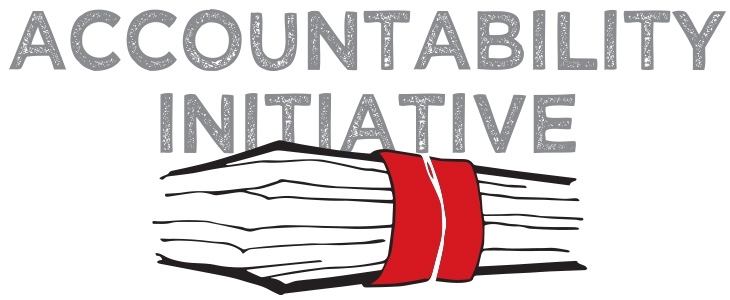
On why we don’t govern ourselves better
15 December 2009
Why do some societies govern themselves better than others? While this is a key question that animates much debate in the political economy of development, in my everyday musings I have considered variants on the theme. And invariably, with the cynicism and frustration that often characterizes my own experience of living in India, I find myself looking for answers to the question “what would it take for Indians to govern themselves better?”
At an everyday level, take our traffic sense, for instance. Presumably a pet peeve of everyone that is reading this post now. And each one of us has probably at some point wondered why we behave the way we do on our roads? Why do we honk so savagely? Why is the right of way always “MINE”, and our roundabouts veritable Russian roulette? Why do we violate the rules with such impunity? And complain that the traffic policemen don’t do their jobs, and join in as accomplices anyway by bribing them when they try to fine us for our faults? Why do we chuckle and shrug all these questions off 5 seconds later? Why the casual tolerance of the ordeal that driving on our roads is?
But this is not a rant on our collective traffic sense – or even the lack of it.
Our little and not-so-little everyday corruptions and collusions that give expression to our ‘mistaken view of the state as a vehicle for personal aggrandizement’?
One of our colleagues, who participated in the recent NREGA social audits in Rajasthan, recounted to us how spectacular the event was and how successful it was in uncovering large amounts of fraud. But there were also instances he recounted where the Sarpanches had co-opted some of the villagers and gave them wages for 40 days without needing them to work at all, and kept the remaining 60-days worth of wages, and declared those villagers as having worked the whole 100 days. In this web of co-option, everyone stood to gain – the workers got money for doing nothing (and presumably could use those 100 days to work some more elsewhere and earn further) – the Sarpanch got to keep the money that was never his. It is highly unlikely that a fraud such as this would come up in a social audit, as the co-opted villager has little incentive to speak against the Sarpanch because he himself is accomplice in the crime. The only room for suspicion is the asset that needs to be created at the end of the day as part of the NREGA – a well, a road etc. But with a bit of discretion and ingenuity, anybody can see that there is much scope for the Sarpanch to continue exploiting the goose, one golden egg at a time.
But this is not a post about social audits either.
There are dozens of other instances, ranging from the quotidian to the profound. What is it with our casual fly-tipping? Our defacing of our heritage monuments? Our men peeing on the roads with impunity? Our dismal sense of queuing? Our bakshish to the guy who comes to take the electricity and water meter readings? Our politics? Our almost inhuman acceptance of social discrimination as one’s lot? Our little and not-so-little everyday corruptions and collusions that give expression to our ‘mistaken view of the state as a vehicle for personal aggrandizement’?
Looking for an all-encompassing diagnosis of what ails us through all of these symptoms is a complex academic exercise. At some level of abstraction, theories that have tried to answer questions like why some societies govern themselves better than others, or why some countries develop while others remain trapped in low-growth high-poverty equilibria, have done related things. In the literature on these questions, the possible answers like Geography, Trade, Culture and Colonization, have been found either to be instrumental or to not stand rigorous analysis. The current status of the argument proposes institutions as an explanatory variable to account for differences between societies. Institutions defined simply as rules of the game – the norms of behaviour that structure how people in a society interact with each other. In our public lives, there are formal public institutions like the Constitution, the Law, the Civil Services and so forth, and then there are the everyday informal institutions – the norms and traditions that govern our interactions with one another. Our system of beliefs, our faith, and our caste system in practice being some examples. The theory says progressive institutions are those that create incentives in a way that maximizes the collective benefit for the society as a whole. Regressive ones are those that make it possible for a select few to exploit others.
While that is a plausible explanation, there is something to be said also about the reverse direction of the causality. That is, not only do institutions influence how a society works, but a society and its people – you and I – also influence how our institutions develop over time. Some institutions that suit the more powerful among us are kept that way even if they hurt most others. The caste system is one enduring example of a bad institution that continues to be with us in myriad ways. In other words, institutions – formal and informal – are not always a given. They are a living breathing animal, shaped and reshaped by its people, and by how they affect their incentives. So in a society where bad institutions give scope for economic, social and political discriminations, its people should also at some level be held culpable. Perhaps every society gets the institutions it deserves? This is not unlike saying that every society gets the politicians it deserves, or the journalism it deserves, and the criminals it deserves, perhaps even the traffic it deserves. “We must be crap people”, then, is arguably a fair diagnosis in itself of why we bribe and collude and discriminate and drive badly.
Any approach to accountability (better governance) can only be partial unless it aims eventually to internalize accountable behaviour. As if it were a norm. And for such an approach it is perhaps not enough to look at accountability as making a rule, and making people follow it, “if not…”.
If that seems plausible, what can we do about it? Can we legislate against it? But then we have. And we always find ways to work around the laws and ‘outsmart’ the system. Can we legislate some more? Implement better? Enforce better? Perhaps. But is this merely about legislation? The government? Is this an instrumental matter for policy? Or do we need to dig deeper? Should we go into in the realm of ethics and morals where laws by themselves have limited impact? Go on a collective soul-searching mission? Why are we the way we are, and why can’t we all be better people? Perhaps.
But the point is, any approach to accountability (better governance) can only be partial unless it aims eventually to internalize accountable behaviour. As if it were a norm. And for such an approach it is perhaps not enough to look at accountability as making a rule, and making people follow it, “if not…”.
Perhaps what we also need is a discourse on accountability that invokes it positively – as a responsibility. A moral and ethical responsibility of each and every one of us, as much as it is a legal obligation. A duty as much as a right.
If this is idealism, perhaps we need a bit of idealism in our pragmatics?
Bala Posani is Senior Research Analyst at Accountability Initiative





